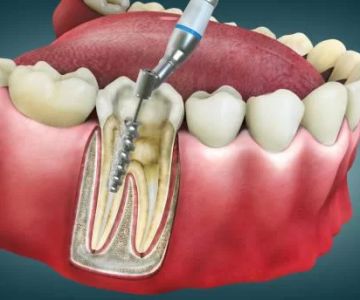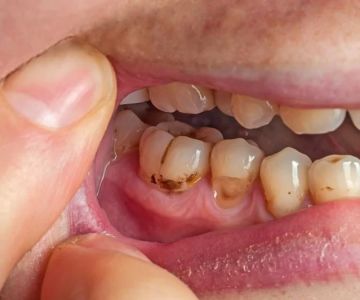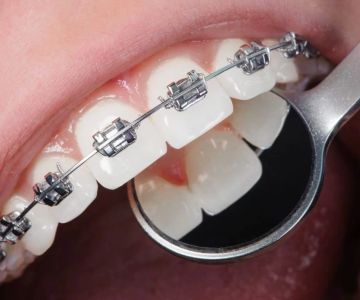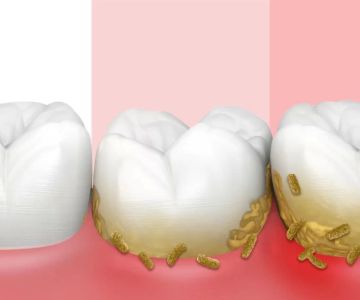Becoming a Dentist in the U.S.: The Road to a Dental Career
vbnet复制For many people, dentistry is an attractive profession. Not only does it offer job security and the chance to help others, but it also brings a sense of accomplishment and respect. As I began my own journey to becoming a dentist, one question stood out in my mind: How many years does it take to become a dentist? If you are asking the same question, you're in the right place. In this article, I’ll take you through the steps, the time commitment, and the important milestones on the way to becoming a successful dentist in the U.S.
The Path to Becoming a Dentist: Understanding the Time Commitment
Before we dive into the details, let's start with the basic timeline. Becoming a dentist in the United States is not a quick process. It involves several stages, each with its own requirements. In total, expect to dedicate around 8 to 12 years to become a dentist. Here's how that time breaks down:
1. Completing Your Undergraduate Degree (4 Years)
Before you even think about dental school, you must first complete an undergraduate degree. This typically takes four years. While you can technically major in any field, most aspiring dentists choose to pursue a degree in a science-related discipline, such as biology or chemistry. These programs cover key subjects like anatomy, chemistry, and biology, which will lay the foundation for your dental studies.
Although some schools may offer pre-dental programs, most students will complete a traditional bachelor's degree first. You’ll also need to maintain a competitive GPA, as dental schools are highly selective. During this time, you should also gain some hands-on experience in the dental field, either through volunteering or internships, to strengthen your application to dental school.
2. Applying to Dental School (1 Year)
Once you’ve completed your undergraduate degree, the next step is applying to dental schools. This process typically takes a year and involves preparing for and taking the Dental Admission Test (DAT). The DAT assesses your academic abilities and knowledge in subjects like biology, chemistry, and perceptual ability.
Dental school applications can be competitive, so it's important to focus on building a strong application package. Along with your DAT scores and GPA, schools will also look at your extracurricular activities, letters of recommendation, and personal statement. This is the time when your commitment to the profession truly begins to shine.
3. Dental School (4 Years)
Once you're accepted into a dental school, it's time to focus on your studies. Dental school typically lasts four years. The first two years primarily focus on classroom learning, where you'll dive into subjects like human anatomy, oral biology, pathology, and dental materials. You’ll also start learning about the various dental procedures, from basic cleanings to more advanced treatments.
The final two years of dental school are focused on clinical practice, where you'll have the opportunity to work with real patients under the supervision of experienced faculty members. This is where you’ll start to apply everything you’ve learned and begin developing your clinical skills. By the end of these four years, you’ll be ready to receive your Doctor of Dental Surgery (DDS) or Doctor of Dental Medicine (DMD) degree.
4. Passing National and State Examinations (1 Year)
After graduation, the next major hurdle is passing both the National Board Dental Examinations (NBDE) and your state’s clinical exams. The NBDE is split into two parts: one focusing on basic sciences and the other on clinical dental knowledge. You’ll also need to pass a clinical exam, where you demonstrate your ability to perform dental procedures.
In total, this process can take about a year after graduating from dental school, depending on when you schedule your exams. Some states also have additional requirements, such as jurisprudence exams, which test your knowledge of local dental laws and ethics.
5. Pursuing a Specialty (Optional – 2 to 6 Years)
If you decide to specialize in a specific area of dentistry, such as orthodontics, oral surgery, or periodontics, you'll need to attend an additional residency program. These programs can last anywhere from two to six years, depending on the specialty. Keep in mind that residency programs are highly competitive and often require additional exams and training.
While a general dentist can start practicing immediately after dental school, a specialist will need to complete their residency program before they are eligible to work in their field.
Real-Life Experience: My Journey to Becoming a Dentist
When I first started, I had no idea what the journey to becoming a dentist would entail. Like many others, I initially thought it would take only a few years to get into the field. However, as I learned more about the process, I began to realize just how much dedication and commitment it would take to succeed. I started my undergraduate studies with the goal of attending dental school, and over the course of my time in school, I discovered a true passion for oral health.
One of the most important parts of my journey was my time in dental school. The first two years were filled with rigorous coursework, and I found myself spending hours in the library each week. But as soon as I began working with patients during my clinical rotations, I knew I was on the right path. Those years of hard work finally paid off when I graduated with my DDS degree and was able to start my practice. The journey wasn't easy, but it was well worth it.
Conclusion: Patience and Dedication
Becoming a dentist is a long but rewarding journey. From earning your undergraduate degree to completing dental school and passing your exams, you’ll need to dedicate several years to the process. If you're willing to put in the time and effort, however, the rewards of becoming a skilled professional in the dental field are well worth the investment.







 WinningSmiles Custom Dentistry & Implant Center
WinningSmiles Custom Dentistry & Implant Center Crossroads Pediatric Dentistry
Crossroads Pediatric Dentistry Corona Hills Modern Dentistry and Orthodontics
Corona Hills Modern Dentistry and Orthodontics Ernstberger Orthodontics
Ernstberger Orthodontics Emergency Dental Help
Emergency Dental Help Shawn O'Berry DDS
Shawn O'Berry DDS The Importance of Oral Health Education During Pregnancy for a Healthy Pregnancy
The Importance of Oral Health Education During Pregnancy for a Healthy Pregnancy Why Skipping Dental Checkups Can Lead to Bigger Oral Health Problems
Why Skipping Dental Checkups Can Lead to Bigger Oral Health Problems Advantages of Porcelain Dental Restorations
Advantages of Porcelain Dental Restorations Best Tips for Brushing Your Teeth Properly for Healthy Gums: Essential Techniques for Oral Health
Best Tips for Brushing Your Teeth Properly for Healthy Gums: Essential Techniques for Oral Health How Can Diabetes Cause Tooth and Gum Problems? Preventing and Managing Oral Health Issues
How Can Diabetes Cause Tooth and Gum Problems? Preventing and Managing Oral Health Issues Healthy Habits for Promoting Good Oral Health and Hygiene: Tips for a Healthy Smile
Healthy Habits for Promoting Good Oral Health and Hygiene: Tips for a Healthy Smile